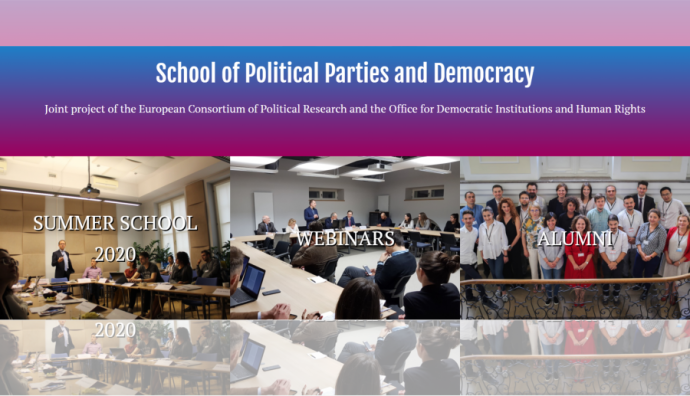

On 17 August, the OSCE Office for Democratic Institutions and Human Rights (ODIHR) and the European Consortium for Political Research (ECPR) launched their week-long Summer School on Political Parties and Democracy. This third edition of the summer school was organized in collaboration with the OSCE Academy in Bishkek, the Cardinal Stefan Wyszyński University in Warsaw, and the Research Centre for the Study of Parties and Democracy - REPRESENT - of the University of Nottingham.
Participants and countries
Due to the COVID-19 crisis, this edition was held in the online format. It brought together 21 researchers, practitioners and civil society leaders in the field of political parties and democracy from Albania, Bulgaria, Croatia, Czechia, Georgia, Kazakhstan, Kyrgyzstan, Poland, Romania, Russia, Serbia, Slovakia, Tajikistan, Turkmenistan and Ukraine.
Two OSCE Academy alumni and one current MA student participated in this school. "The program of the third ECPR-OSCE/ODIHR summer school covered important topics in the study of democracy and political parties, and also addressed contemporary issues democracies are facing, such as populism. In particular, the participants and the summer school experts discussed challenges in building strong democratic institutions and institutionalization of party systems in post-Communist countries and beyond. I found the summer school lectures and discussions very useful and learned more about OSCE ODIHR's activities. I presented a paper on voting preferences in rural Kyrgyzstan during 2015 Parliamentary elections, and received valuable comments and suggestions. Despite its online format, the school succeeded to create a network of enthusiastic researchers and practitioners interested in building strong democracies. Overall, I found the program very useful and motivating, and I recommend ECRP-OSCE/ODIHR school to the OSCE Academy students and alumni," said alumna Arzuu Sheranova.
Schedule
The intensive seven-day schedule was meant to improve participants’ knowledge on political parties, party systems, democracy and elections. As such, participants attended lectures and seminars led by prominent scholars and practitioners in the field, as well as presented and discussed their research projects. Participants representing academia learned more about the requirements and criteria of international academic publishing. Additionally, practitioners received insights into the main academic findings regarding party politics and democracy promotion.
More information about the school can be accessed at: https://democracyandparties.com/